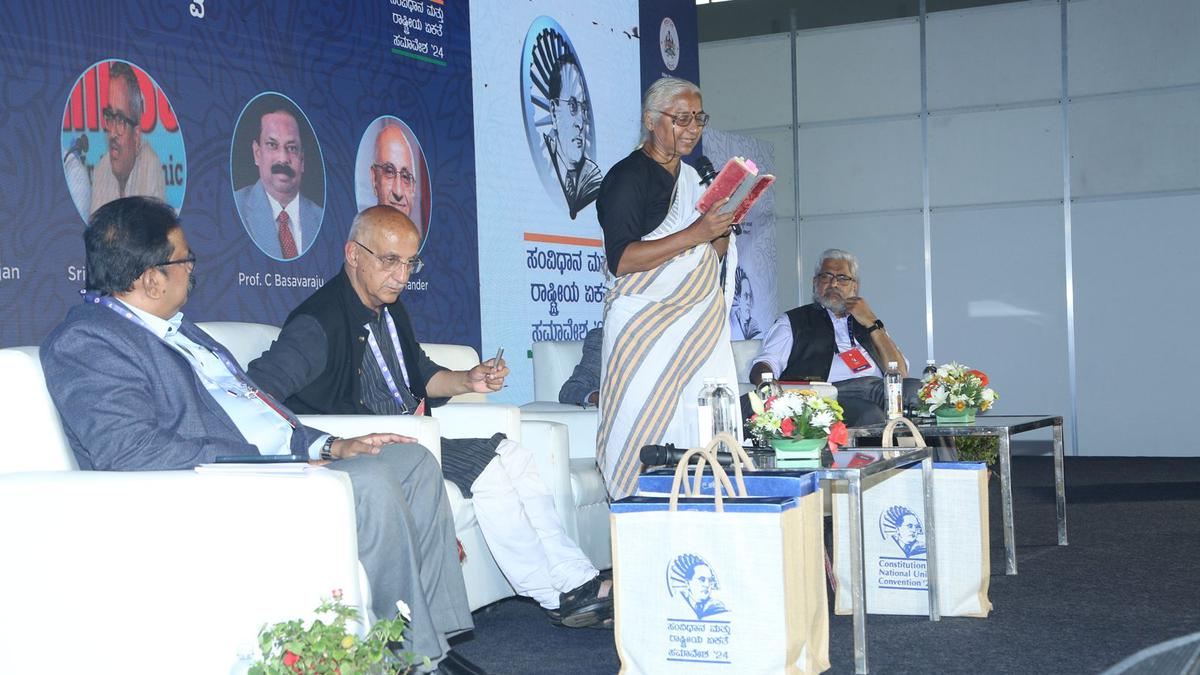
Gandhi would have opposed Ram temple built over demolished mosque, says activist
The Hindu
Activists and scholars emphasize reliance on Constitution values amidst threats to India's founding ideas and constitutional morality.
At a time when India’s constitutional morality and founding ideas are being threatened, the citizens need to rely more and more on the Constitution and its values, said activists and scholars gathered on the first day of the two-day Constitution and National Unity Convention being organised by the Karnataka government.
Harsh Mander, activist and author, said that India is passing through a moment of “profound civilisational crisis.” Reminding that Mahatma Gandhi’s last fast was against the takeover of Muslim shrines by Hindus, he said that Gandhiji would not have been in favour of the Ram temple in Ayodhya today.
He further added that when the Constitution was being drafted the people of India had promised themselves to build a country where every citizen is equal and that is the country we are losing every day with very little protest. “The true soul of a country lies in fraternity,” he said quoting Dr B.R. Ambedkar.
Citing the incident of a Muslim youth beaten to death in the suburbs of Delhi during Ganesh Puja last year, he pointed out that it happened in a densely populated locality and nobody came to the man’s aid.
“It is the same indifference we displayed when migrant workers walked several thousands of kilometres under the sun during lockdown… This civilisational crisis represents the gravest threat to India’s constitutional morality,” he said. “There is targeted demolition today. Structures are being demolished in a way that no mob could have achieved,” said Mr Mander.
Exhorting people to assert their right to equity, activist Medha Patkar, who chaired the session on “Fundamental rights, Directive principles and Citizenship”, called for a change in the current taxation policies and demanded that the richest should be compelled to pay wealth tax and inheritance tax.
“If even 1% of the richest are compelled to pay 2% wealth tax, more than ₹7 to ₹8 lakh crores will come to the state exchequer… How can this not be attempted and inserted into the economic action plan is our question,” she said, while pointing out that the state which is unwilling to write off the loans of the farmers, does it for corporates.











